EBRC Technical Roadmaps
EBRC Roadmapping is an evergreen process, with new roadmaps available annually.
Engineering Biology for Space Health: An Innovative Research Roadmap (2024). To view the roadmap, click here.
EBRC has also published Enabling Defense Applications through Engineering Biology (2020). To view this roadmap, please click here.
Engineering Biology for Space Health
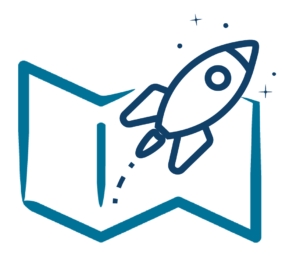 Engineering Biology for Space Health
Engineering Biology for Space Health
This EBRC technical research roadmap, Engineering Biology for Space Health, provides a detailed evaluation of opportunities for engineering biology to improve human health and well-being during space exploration missions and help solve societal challenges here on Earth. Keeping humans alive on ever-longer and ever-further missions into space will require the sustainable production and access to food, new and more efficient and effective health and medicine capabilities, and enabling and ensuring resources to support life and control the local environment, particularly when those resources are limited. This roadmap is intended to guide technical research and development, investment, and programmatic decisions into engineering biology tools and technologies that will help overcome the challenges of extended space travel.
Released October 22, 2024
View the Roadmap Here!
Assessment of Engineering Biology

An Assessment of Short-Term Milestones in EBRC’s 2019 Roadmap, Engineering Biology
The Assessment of EBRC’s 2019 roadmap, Engineering Biology, reviews progress in the field, compared against the advancements anticipated by the roadmap’s 2-year milestones, and reports on technical achievements and advancements in addition to barriers, both transient and persistent, to progress. The information conveyed by the Assessment enables the research community to reflect on its achievements, enables industry to better anticipate nascent and emerging technologies, and supports policymakers and funders in identifying priority areas for additional investment and infrastructure to ensure continued advancement.
Released March 13, 2023
Read the Assessment
Engineering Biology for Climate & Sustainability
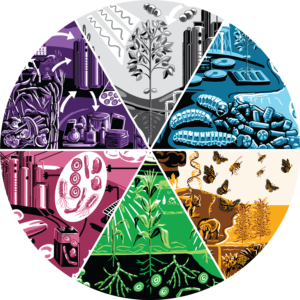
Engineering Biology for Climate & Sustainability
EBRC’s newest roadmap addresses opportunities for engineering biology to contribute to tackling the climate crisis and long-term sustainability for the health and well-being of Earth and its inhabitants. This roadmap identifies novel approaches, objectives, and aims for engineering biology research in climate change mitigation and adaptation that can help to lower greenhouse gases, reduce and remove pollution, and promote biodiversity and ecosystem conservation. This roadmap also identifies opportunities for engineering biology-enabled, sustainable replacements and alternatives in the food and agriculture sector, transportation and energy sectors, and for materials and industrial processes.
Released September 27, 2022
View the Roadmap
Read our npj Climate Action Comment on the opportunities presented in this roadmap: Addressing the climate crisis through engineering biology. (Published February 21, 2024.)
Engineering Biology & Materials Science
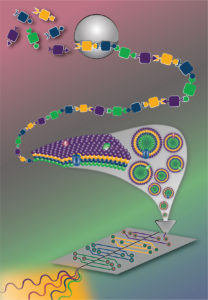
Engineering Biology & Materials Science
Engineering Biology & Materials Science: A Research Roadmap for Interdisciplinary Innovation assesses the challenges and potential for innovation at the intersection of engineering biology and materials science. Through explicit, long-term breakthrough capabilities and milestones for scientific and technological achievements, this roadmap aims to bring together the foundations and advancements in both fields to create new scientific and engineering possibilities. The roadmap also envisions creative and ambitious material solutions to persistent societal challenges that leverage the opportunities and advantages of harnessing and integrating engineered biology. The roadmap provides a high-level path for research and development to enable a powerful future of advanced materials.
Released January 19, 2021
View the Roadmap
Microbiome Engineering
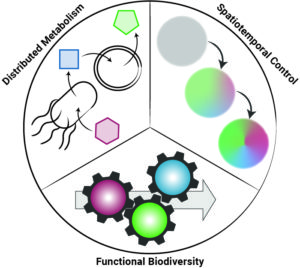 Microbiome Engineering
Microbiome Engineering
Microbiome Engineering: A Research Roadmap for the Next-Generation Bioeconomy is a critical assessment of the current state of microbiome engineering and areas of anticipated research and development in the next twenty years. The roadmap also details microbiome engineering advancements that can be applied across different sectors of society and industry to solve major challenges. This roadmap aims to serve as a “go-to” resource for scientists working to engineer microbiomes, as well as policy and program leaders interested in advancing microbiome engineering.
Released October 19, 2020
View the Roadmap
Read our ACS Synthetic Biology Viewpoint on the opportunities presented in this roadmap: Engineering Microbiomes — Looking Ahead (published December 18, 2020).
Engineering Biology
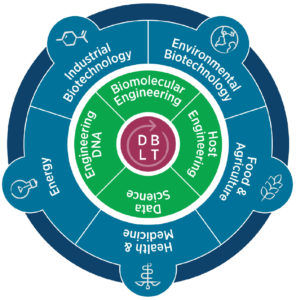 Engineering Biology
Engineering Biology
Engineering Biology: A Research Roadmap for the Next-Generation Bioeconomy is a critical assessment of the status and potential of engineering biology. It is intended to provide researchers and stakeholders with a compelling set of technical challenges and opportunities in the near and long term. The matrixed framework of the roadmap considers challenges, bottlenecks, and other limitations observed or predicted in the research, development, and application of advancements in engineering biology tools and technologies toward addressing broad societal challenges.
Released June 19, 2019
View the Roadmap
About EBRC Roadmapping
EBRC Roadmaps provide a critical assessment of the current status and potential of engineering biology. Our roadmaps are intended to provide researchers and other stakeholders (including government funders) with a compelling set of technical challenges and opportunities in the near and long term. The EBRC Technical Roadmapping Working Group leads the development of the roadmap scope and content, combined with collective insight and input leveraged from leading scientists and engineers from EBRC and the broader research community. Our ongoing roadmapping process was initiated in response to the recommendations put forth in the 2015 National Academies report, Industrialization of Biology, and is primarily supported by the National Science Foundation. EBRC endeavors to provide a go-to resource for engineering/synthetic biology research and related endeavors; the results are roadmaps that represent a collaborative effort of the engineering biology research community and the community’s vision for the future of the field.
More
Roadmapping Process & Contributors
EBRC roadmaps are developed using a community-driven process that emphasizes diversity and inclusivity. Volunteer contributors are sourced from the EBRC membership and broader research and stakeholder communities – leading scientists and engineers from academia, industry, government, and nonprofit organizations. EBRC’s Technical Roadmapping Working Group leads the development of each roadmap’s scope and content.
Each roadmap is developed through an iterative process at a series of roadmapping workshops and through the dedicated efforts of contributors on their own time. Sections initially drafted at one workshop, are picked up by a wholly different group at another, allowing diverse community input to drive the content. Using an open, web-based approach, contributors are able to write, edit, comment, and question throughout the development process. Each section of the roadmap is reviewed by contributors that have not worked on the section originally. The content is then finalized and edited for consistency and published on this web-based platform ensuring it is interactive and freely-available world-wide.
For more about the process and contributors, please see each roadmap’s About and Contributors pages.

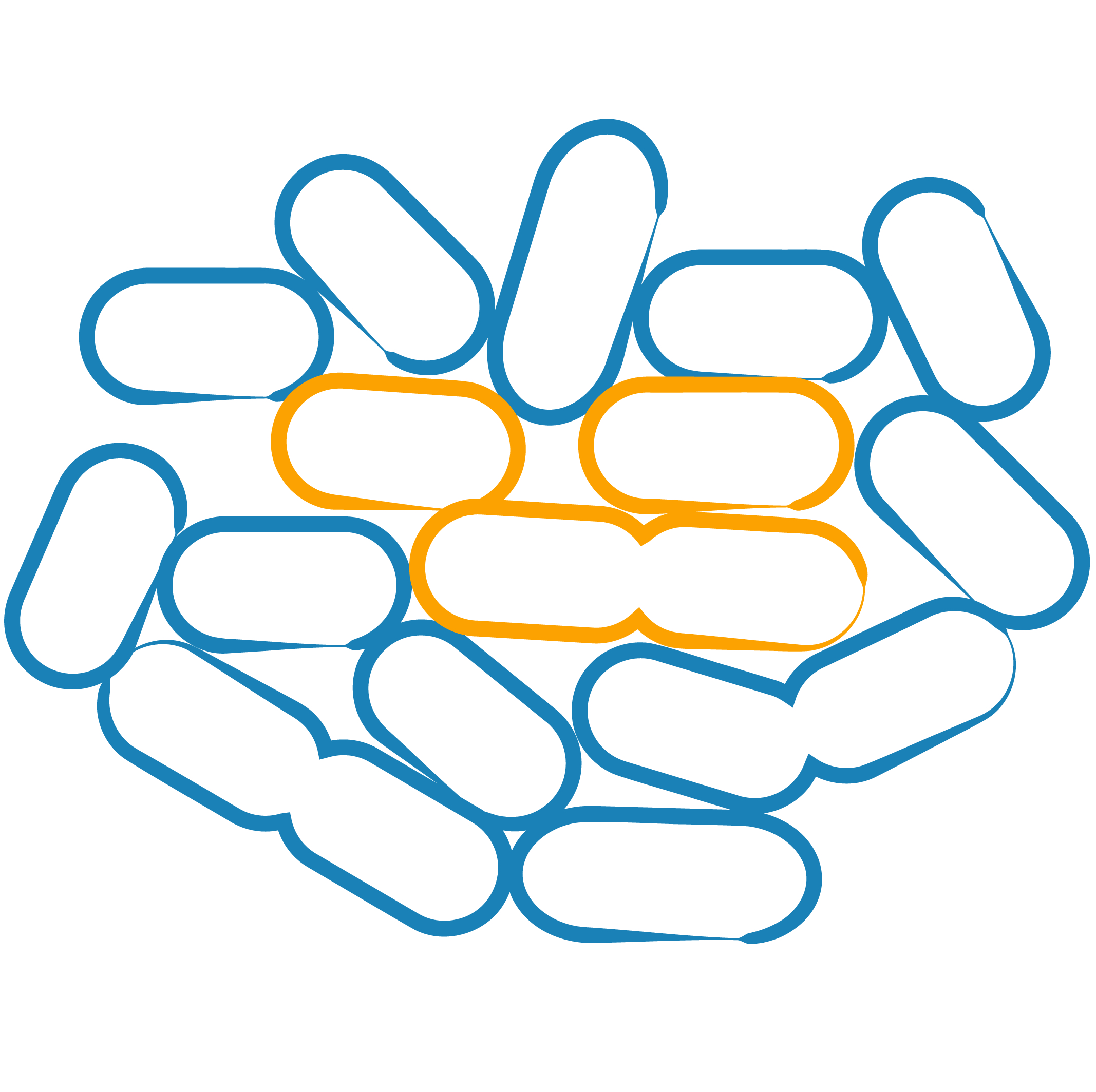


 Engineering Biology for Space Health
Engineering Biology for Space Health


 Microbiome Engineering
Microbiome Engineering Engineering Biology
Engineering Biology